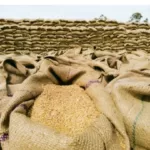New Delhi – In the lead-up to the United Nations General Assembly in New York, anticipation is building as External Affairs Minister S. Jaishankar prepares to address the allegations made by Canadian Prime Minister Justin Trudeau. Trudeau has raised “credible allegations” regarding Indian involvement in the killing of Khalistani terrorist Hardeep Nijjar, trained in Pakistan, back in June.
While Canada has informed India about updated travel advisories based on videos targeting Canadians online, the demand for legal evidence connecting India to Nijjar’s killing remains pending. Trudeau’s political stance, heavily influenced by Sikh politics, suggests he is unlikely to backtrack on the issue. Regardless of the quality of evidence or its legal validity, Trudeau is expected to name an Indian figure and attribute Nijjar’s murder to them.
The significance of the Sikh vote in Canadian politics cannot be understated. Former Prime Minister Stephen Harper even requested Prime Minister Narendra Modi’s visit to a Gurudwara in Surrey, British Columbia, during Modi’s 2015 visit to Canada. It’s noteworthy that Modi found supporters within the radicalized Sikh community, located two hours from Vancouver.
Canada’s recent update of its travel advisory to India, with prior notification to Indian authorities, appears to be a precautionary measure in response to videos circulating online targeting Canada. New Delhi was reportedly informed at a senior level about this advisory update, suggesting it may not carry deeper implications.
Jaishankar’s upcoming UNGA speech is expected to provide a fitting response to Trudeau’s allegations. Following his UNGA address, Jaishankar is set to travel to Washington D.C. for bilateral meetings with the Biden Administration, during which he will discuss bilateral relations and evaluate the credibility of evidence provided by the Five Eyes Alliance to Canada concerning Nijjar’s killing.
As time passes, the onus is increasingly on the Canadian government to reveal the identity of Nijjar’s contract killer unless their strategy is to prolong tensions with India and make further unsubstantiated allegations in the coming months. India maintains its stance that the Modi government played no role in Nijjar’s political assassination. It supports the legal process in Canada but vehemently opposes any baseless charges against India. The PM and his Foreign Minister’s controversial statements have already set bilateral relations on a troubling trajectory.




